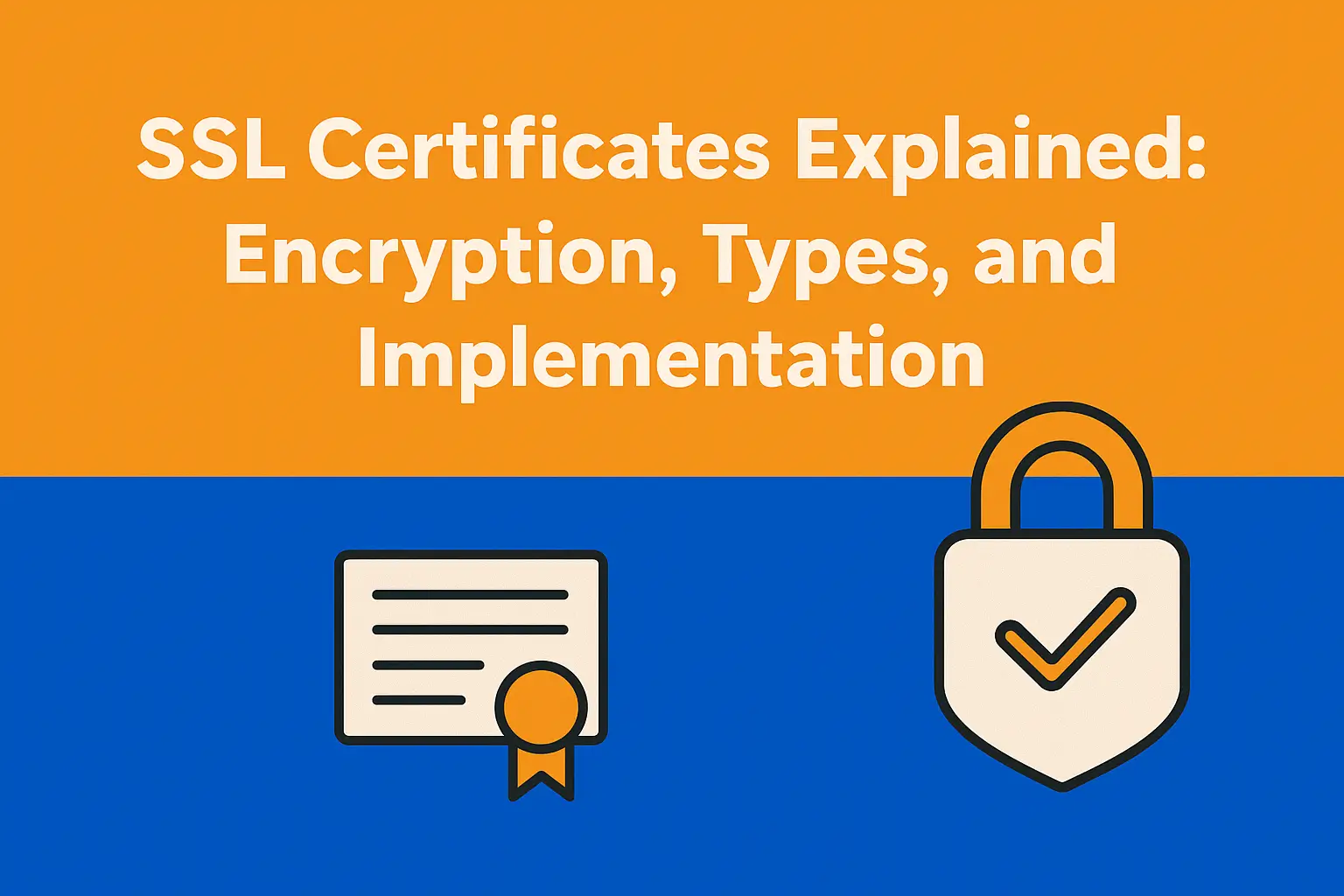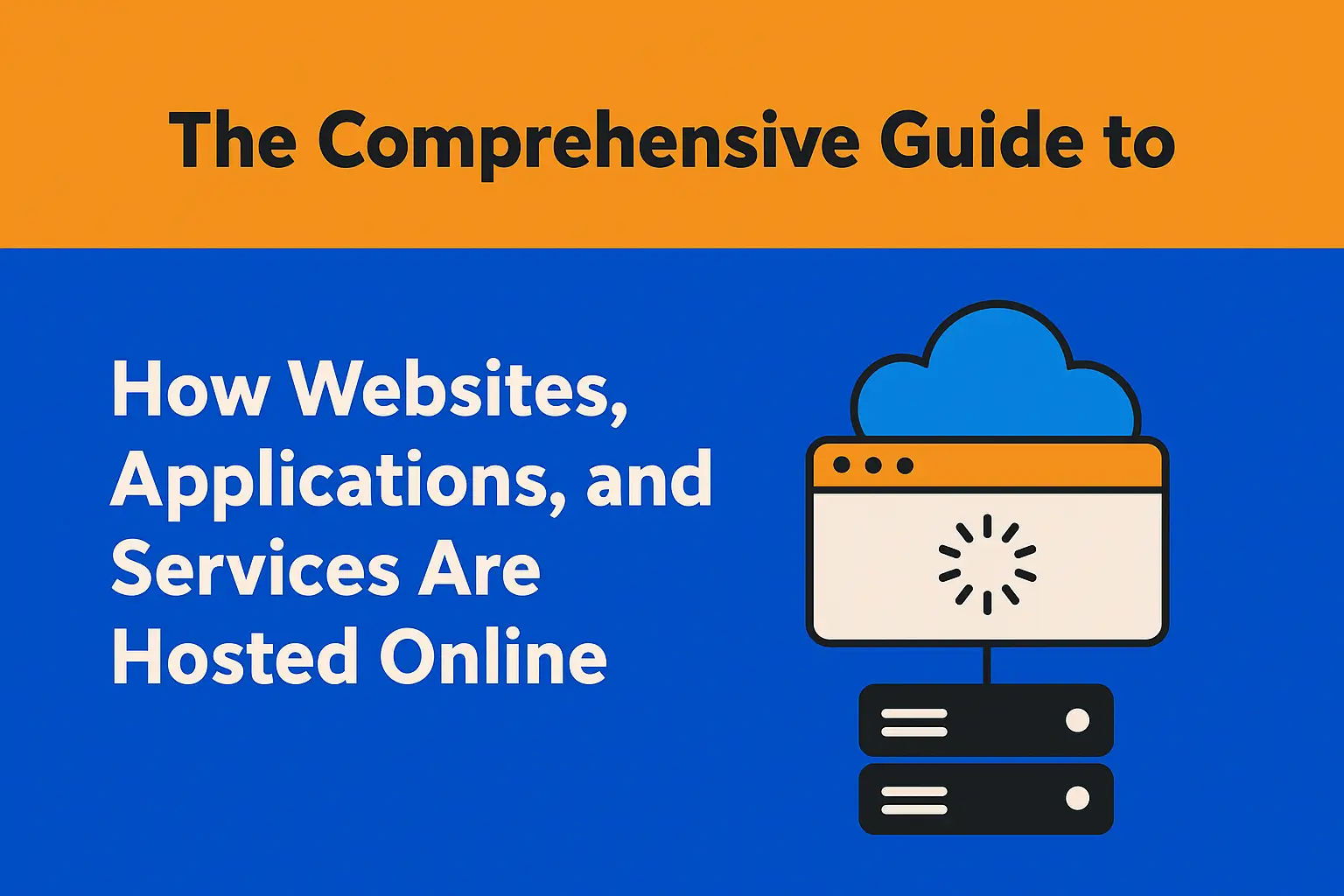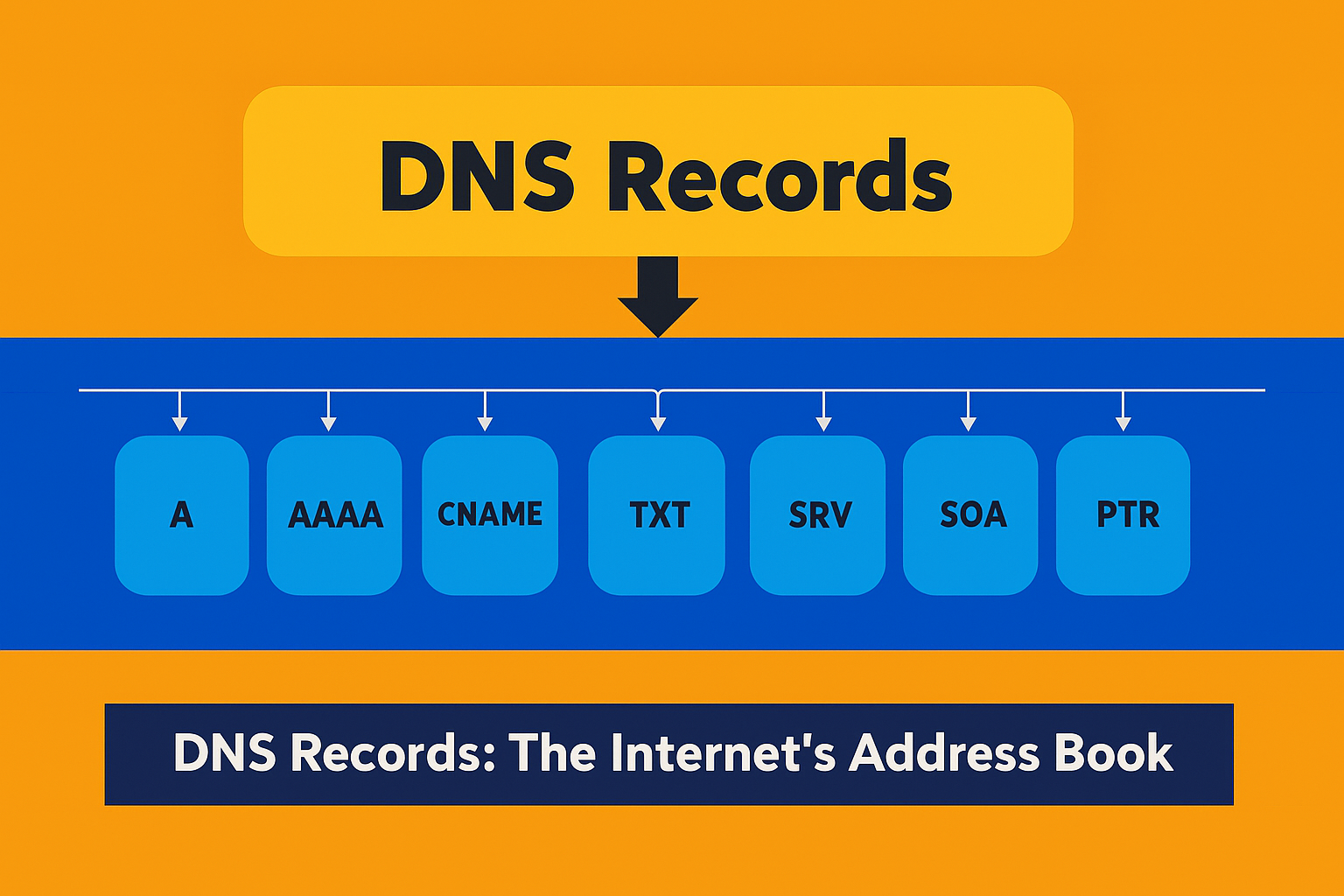
Introduction to Hosting Types
Web hosting is a fundamental component in the architecture of a website, serving as the foundation for its performance and accessibility. Essentially, hosting involves storing your website’s data on a server, making it accessible to users on the internet. Without proper hosting, a website cannot operate efficiently, leading to poor user experiences and potential downtime.
Among the various hosting options available, shared hosting and WordPress hosting stand out due to their popularity and distinct features. Shared hosting is an entry-level solution where multiple websites share the same server resources. This type of hosting is cost-effective and suitable for small-scale websites or beginner users who don’t anticipate significant traffic or complex functionalities.
Conversely, WordPress hosting is specifically optimized for WordPress websites, providing enhanced performance, security, and support tailored to the WordPress platform. This hosting type typically includes features like pre-installed WordPress, automatic updates, and specialized customer support, making it an attractive choice for users who rely heavily on the WordPress content management system (CMS).
For broader context, other hosting types include Virtual Private Server (VPS) hosting and dedicated hosting. VPS hosting offers a middle ground between shared and dedicated hosting, providing a virtualized server environment with more dedicated resources and greater control. Dedicated hosting, on the other hand, involves leasing an entire server exclusively for your website, offering the highest level of performance, security, and customization. While these options provide distinct advantages, they also come with higher costs and complexity, making them more suitable for larger, resource-intensive projects.
Understanding the nuances of each hosting type is essential when choosing the right solution for your website. Whether opting for the affordability of shared hosting or the specialized features of WordPress hosting, selecting the appropriate hosting service plays a pivotal role in ensuring optimal website performance and user satisfaction.
What is Shared Hosting?
Shared hosting is a popular web hosting option where multiple websites are hosted on a single physical server, sharing its resources such as CPU, RAM, and disk space. Each website on a shared server operates independently, receiving its own partition of the server’s resources. The allocation of these resources typically depends on the hosting plan you choose, making shared hosting an economical choice, especially for small businesses, personal blogs, and new websites.
The primary appeal of shared hosting lies in its cost efficiency. Since multiple users share the same server infrastructure, the operating costs are significantly reduced. This cost-saving is passed on to the users, making shared hosting the most affordable option in the hosting market. This makes it particularly suitable for websites with low to moderate traffic, such as informational sites, small portfolios, and hobby blogs.
Despite its affordability, shared hosting comes with its drawbacks. One major concern is resource limitation. Because server resources are shared, high traffic on one website can affect the performance of others on the same server. This can lead to slower loading times and decreased functionality during peak usage periods. Additionally, security vulnerabilities are a concern, as multiple sites on the same server increase the risk of cross-site contamination, potentially compromising the safety of your website.
In terms of maintenance, shared hosting services often include technical support, software updates, and regular backups, making it easier for users with limited technical skills to manage their websites. However, the level of control over server settings is generally lower compared to other hosting options, which might be restrictive for advanced users.
In summary, shared hosting is a viable solution for budget-conscious users looking for basic web hosting capabilities with minimal administrative hassle. While it offers several benefits like low cost and ease of use, potential performance issues and security concerns should be taken into consideration when choosing this option.
What is WordPress Hosting?
WordPress hosting is a specialized web hosting solution explicitly designed to optimize and enhance the performance of WordPress websites. Unlike general web hosting, which can host various types of websites and platforms, WordPress hosting is fine-tuned with the specific requirements and features of WordPress in mind, making it a superior choice for WordPress users.
One of the primary attributes of WordPress hosting is the pre-optimized settings tailored for WordPress sites. These settings ensure that the server environment is finely adjusted to meet the performance and resource needs of WordPress applications. This includes server configurations, caching mechanisms, and database management that are calibrated for optimal speed and reliability of WordPress websites.
Additionally, WordPress hosting providers offer specialized support that is proficient in handling WordPress-specific issues. This includes assistance with plugin and theme installations, troubleshooting errors, and optimizing site performance. Such expert support is an invaluable resource, especially for users who may not possess in-depth technical knowledge about WordPress.
Moreover, WordPress hosting often features enhanced security measures tailored to protect WordPress sites from common vulnerabilities. These include real-time monitoring for malicious activities, regular security patch updates, and automatic backups. Providers may also include Web Application Firewall (WAF) services and secure Sockets Layer (SSL) certificates as part of their offerings to safeguard data transmission and ensure robust security.
Another critical aspect of WordPress hosting is the provision of automatic updates for both the WordPress core software and its plugins. Keeping WordPress updated is essential for both functionality and security, and automatic updates simplify this process for users, ensuring that their websites are always running the latest versions without the need for manual intervention.
In summary, WordPress hosting stands out from general web hosting by offering a combination of pre-optimized settings, specialized support, enhanced security, and automated updates. These features collectively ensure that WordPress websites perform optimally, securely, and with minimal hassle for the user.
Performance and Speed
When it comes to performance and speed, shared hosting and WordPress hosting offer distinct experiences shaped by their underlying server configurations and resources. In shared hosting, multiple websites reside on a single server, sharing the same resources such as CPU, RAM, and bandwidth. The performance of your website may fluctuate based on the traffic and resource usage of neighboring sites. While shared hosting plans are generally more affordable, the shared environment can lead to slower load times and less reliable performance during traffic peaks.
On the other hand, WordPress hosting is often optimized specifically for WordPress sites, offering an edge in performance. These hosting plans typically include server configurations and caching mechanisms tailored to enhance the speed and reliability of WordPress websites. Server-level caching, for example, can significantly reduce the time it takes to load pages by storing commonly requested data in readily accessible locations. Dedicated resources ensure that your website consistently performs well, even during periods of high traffic.
Another key advantage of WordPress hosting is the specialized resource allocation. Unlike shared hosting, where resources are stretched across multiple websites, WordPress hosting provides dedicated resources that work exclusively for your site. This targeted allocation can lead to quicker page load times and a smoother user experience. Furthermore, many WordPress hosting plans include Content Delivery Networks (CDNs) and advanced caching plugins, further boosting performance.
Bandwidth management is crucial in both types of hosting, but the approaches differ. Shared hosting has a finite bandwidth capacity, which can become a bottleneck if traffic surges across several sites on the same server. Conversely, WordPress hosting often comes with scalable bandwidth options, allowing your website to handle higher traffic volumes without compromising performance.
In summary, while shared hosting offers a more economical solution, the performance and speed can be inconsistent due to shared resource constraints. WordPress hosting, with its specialized optimization, dedicated resources, and advanced caching, provides a more reliable and faster alternative for WordPress websites.
Security Considerations
When evaluating hosting options, security is a critical factor to consider. Shared hosting and WordPress hosting each offer distinct security features, tailored to different types of users and their specific needs.
Shared hosting environments are designed to be cost-effective and user-friendly, but they come with certain vulnerabilities. Since multiple websites share the same server resources, a security breach in one site can potentially compromise others on the same server. To mitigate these risks, many shared hosting providers implement basic security measures such as shared firewalls, routine malware scans, and regular software updates. However, these measures might not be sufficient for users running high-traffic or mission-critical websites requiring advanced security protocols.
WordPress hosting, on the other hand, is specifically optimized for WordPress sites, offering enhanced security features tailored to this popular content management system (CMS). Providers of WordPress hosting commonly include extensive malware scanning and removal tools, daily backups, and robust firewall protection designed to counteract the specific threats faced by WordPress websites. These advanced security measures provide a higher level of protection against common vulnerabilities like brute force attacks, SQL injections, and cross-site scripting (XSS).
Moreover, WordPress hosting often comes with automatic updates for both the WordPress core and its plugins, ensuring that the latest security patches are always applied promptly. This helps to safeguard the website against newly discovered exploits. In hosted WordPress solutions, there is also typically better isolation between sites, significantly reducing the risk of cross-site contamination.
Overall, while shared hosting may suffice for smaller, less complex websites with limited security demands, WordPress hosting offers a more robust and specialized security infrastructure. This makes it a preferred choice for WordPress site owners looking for peace of mind and a secure hosting environment that is continuously monitored and fortified against emerging threats.
When evaluating shared hosting and WordPress hosting, one key factor to consider is ease of use and management. Shared hosting, being a more general solution, typically comes with a standard control panel like cPanel or Plesk. These panels provide a range of tools that cater to various types of websites, including file management, email setup, and database access. While these interfaces are robust, they may require a moderate level of technical knowledge to navigate effectively. Users who are not familiar with server management may find it slightly challenging to configure and maintain their websites, especially if they encounter issues that require deeper technical expertise.
In contrast, WordPress hosting is specifically optimized for WordPress sites, often coming with a custom dashboard designed to simplify the user experience. Managed WordPress hosting providers usually offer a more streamlined control panel, featuring user-friendly tools tailored explicitly for WordPress. This can include one-click WordPress installations, automatic updates, and pre-configured security settings, which significantly reduce the amount of technical work required. For users new to website management or those looking to minimize hands-on maintenance, managed WordPress hosting is an attractive option as it alleviates many of the routine tasks associated with running a website.
Moreover, managed WordPress hosting often includes additional services such as regular backups, improved website performance through caching solutions, and enhanced security measures. These features not only enhance the overall user experience but also ensure the website runs smoothly with minimal intervention. Users can focus more on content creation and less on the technical details of keeping the site operational.
In summary, for those who seek a more straightforward and less hands-on approach, managed WordPress hosting offers significant advantages over shared hosting in terms of ease of use and management. While shared hosting requires a bit more technical know-how, it provides flexibility for various website types. Managed WordPress hosting, however, stands out for its optimized, user-friendly environment, making it the preferred choice for WordPress users aiming for efficiency and simplicity.
Cost Comparison
When comparing the costs of shared hosting and WordPress hosting, one must consider both initial setup fees and ongoing costs. Shared hosting is typically more budget-friendly. For instance, popular providers like Bluehost and HostGator offer plans starting as low as $2.95 per month, often with promotional rates for new customers. These plans generally include essential features such as a free domain for the first year, limited storage, and basic customer support.
In contrast, WordPress hosting usually comes at a higher price point. Providers like SiteGround and WP Engine offer specialized WordPress hosting plans, which start around $4.99 per month and can go up to $30 or more, depending on the level of service. These plans are designed specifically for WordPress websites and often include benefits such as managed updates, enhanced security features, optimized performance, and expert WordPress support.
While the ongoing monthly costs are higher for WordPress hosting, the value proposition often justifies the price. For example, WP Engine’s entry-level plan at $25 per month includes features like daily backups, one-click restoration, and built-in caching to improve site speed and reliability. Similarly, SiteGround’s plans, starting at $4.99 per month, offer automatic updates, WordPress staging environments, and specialized support, which can significantly reduce the time and expertise required to manage a website.
In addition to the monthly costs, one should consider any additional fees that may apply. Shared hosting plans may have higher renewal rates after the initial promotional period, while WordPress hosting plans tend to have more consistent pricing structures. Furthermore, the enhanced performance and security features of WordPress hosting often negate the need for additional plugins or services which could add to the overall cost.
In conclusion, while shared hosting offers a more economical solution, especially for small websites or beginners, WordPress hosting provides greater value through a comprehensive suite of features tailored specifically for WordPress sites. The choice largely depends on your specific requirements, budget, and long-term goals.
Choosing the Right Hosting for Your Needs
When selecting the ideal hosting type for your website, it is crucial to consider your specific needs and objectives. Shared hosting and WordPress hosting each have distinct advantages and cater to different scenarios, making it essential to evaluate your requirements comprehensively before committing. Below, we provide guidance on choosing between shared hosting and WordPress hosting based on various factors.
Shared hosting is generally a cost-effective and user-friendly solution, particularly for those starting with personal blogs, small business websites, or portfolios. It allows you to share server resources with multiple websites, reducing the overall cost. For individuals with limited technical expertise or minimal budget, shared hosting offers sufficient features to get a website up and running swiftly. Additionally, it comes with simple management interfaces, making it easy for beginners to handle without in-depth technical knowledge.
On the other hand, WordPress hosting is specifically optimized for WordPress websites, providing better performance, security, and support. If you are running a resource-intensive WordPress site, such as an e-commerce store, a high-traffic blog, or a complex membership site, WordPress hosting is more advantageous. It offers features like automatic updates, enhanced security measures, and caching mechanisms that significantly improve website speed and reliability. Moreover, WordPress hosting typically includes specialized support from experts familiar with the WordPress ecosystem, assisting in troubleshooting specific issues efficiently.
To make an informed decision, consider the following checklist:
– Assess the technical expertise available: Opt for shared hosting if you are a beginner with minimal technical skills. Choose WordPress hosting if you require advanced features and specialized support.
– Determine your budget: Shared hosting is more budget-friendly, making it suitable for smaller or personal websites. WordPress hosting, while more expensive, provides enhanced performance and security for mission-critical sites.
– Evaluate your website’s goals and scalability: If starting small but planning substantial growth, WordPress hosting may offer better long-term benefits. Conversely, for modest, less demanding projects, shared hosting may suffice.
– Consider the specific needs of your website: Tailor your choice based on the type of content you plan to host and the expected traffic levels.
Thoroughly assessing these factors will help you select the most appropriate hosting type, ensuring your website’s success and sustainability.





0 Comments